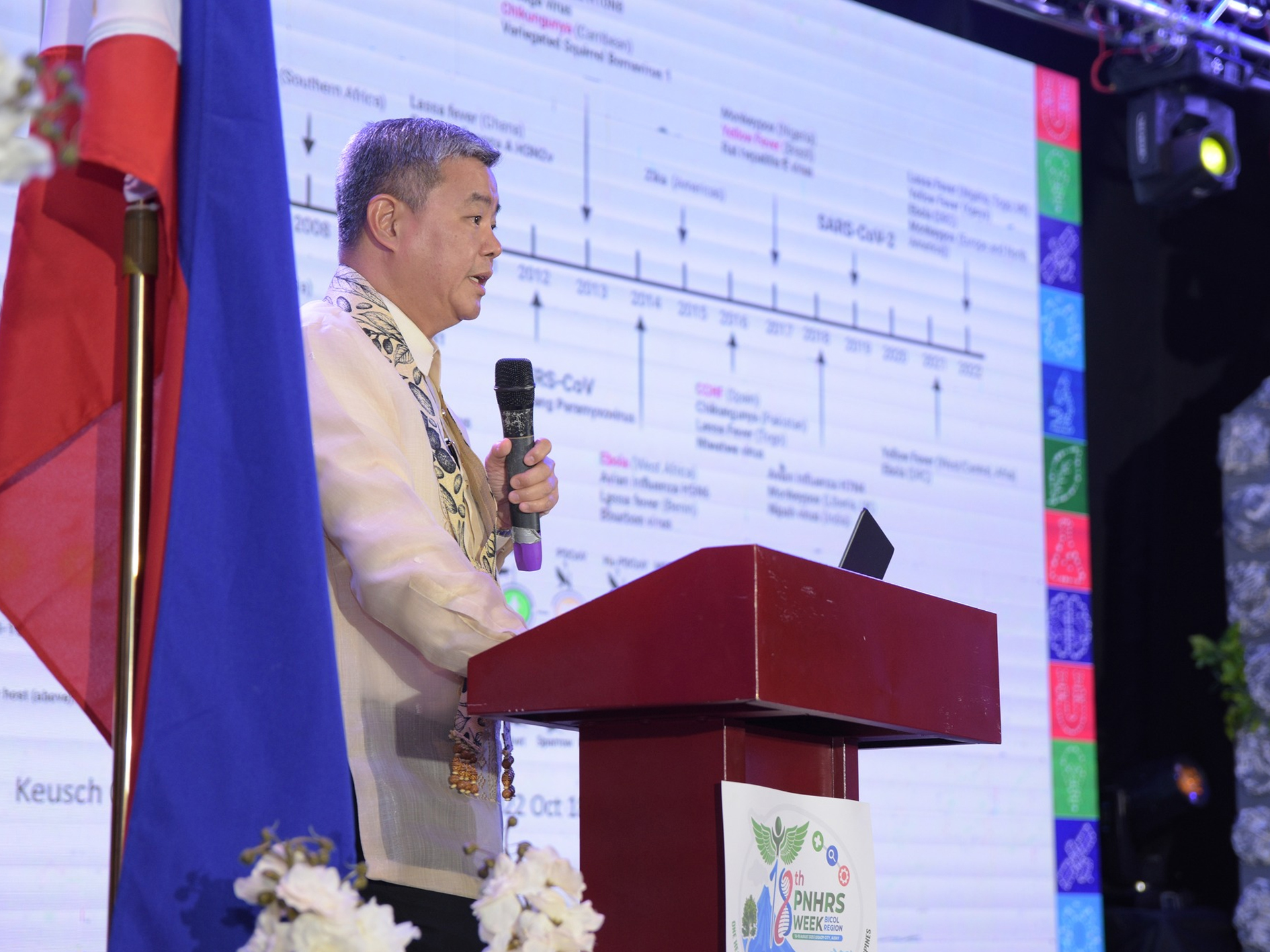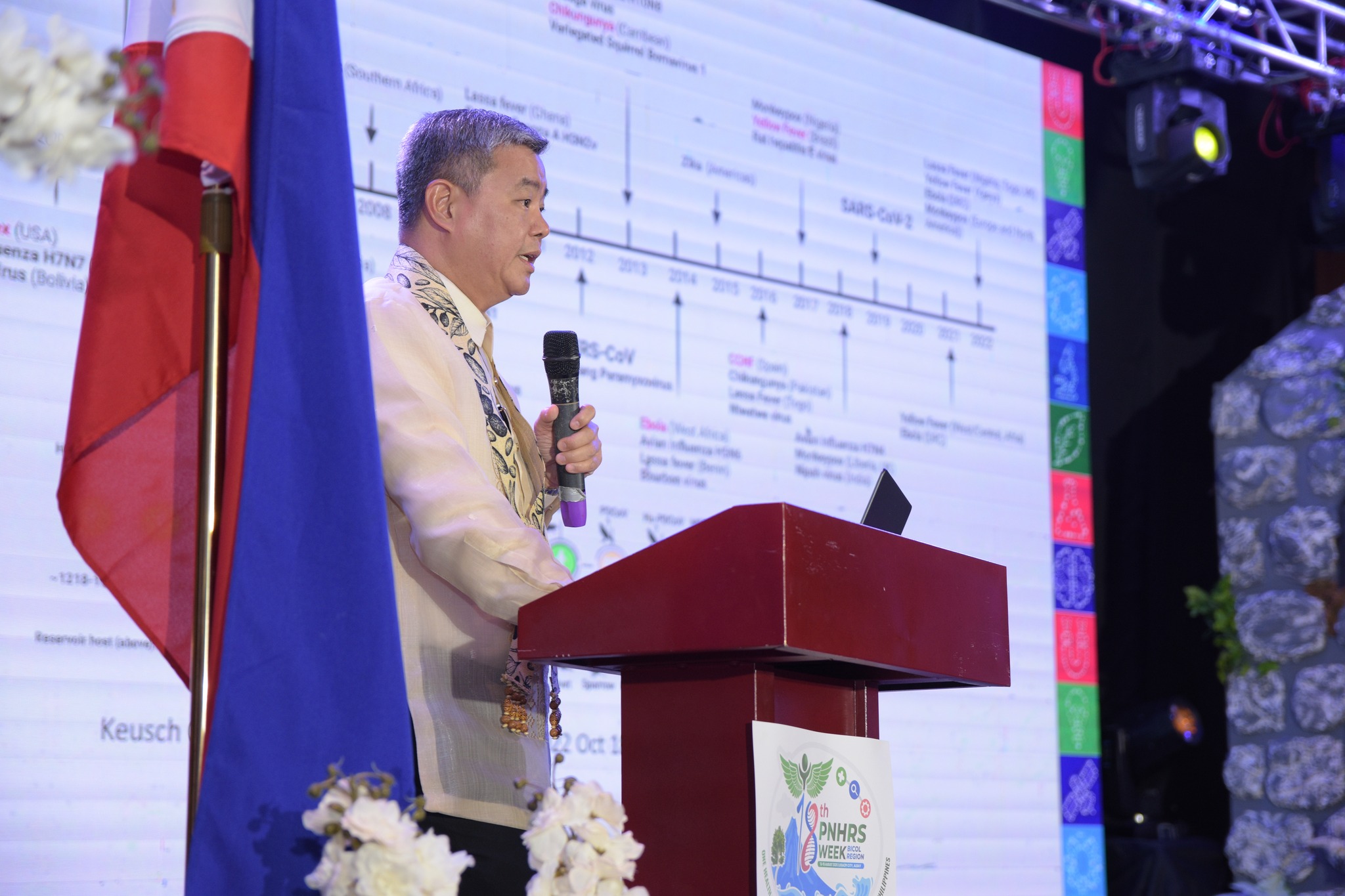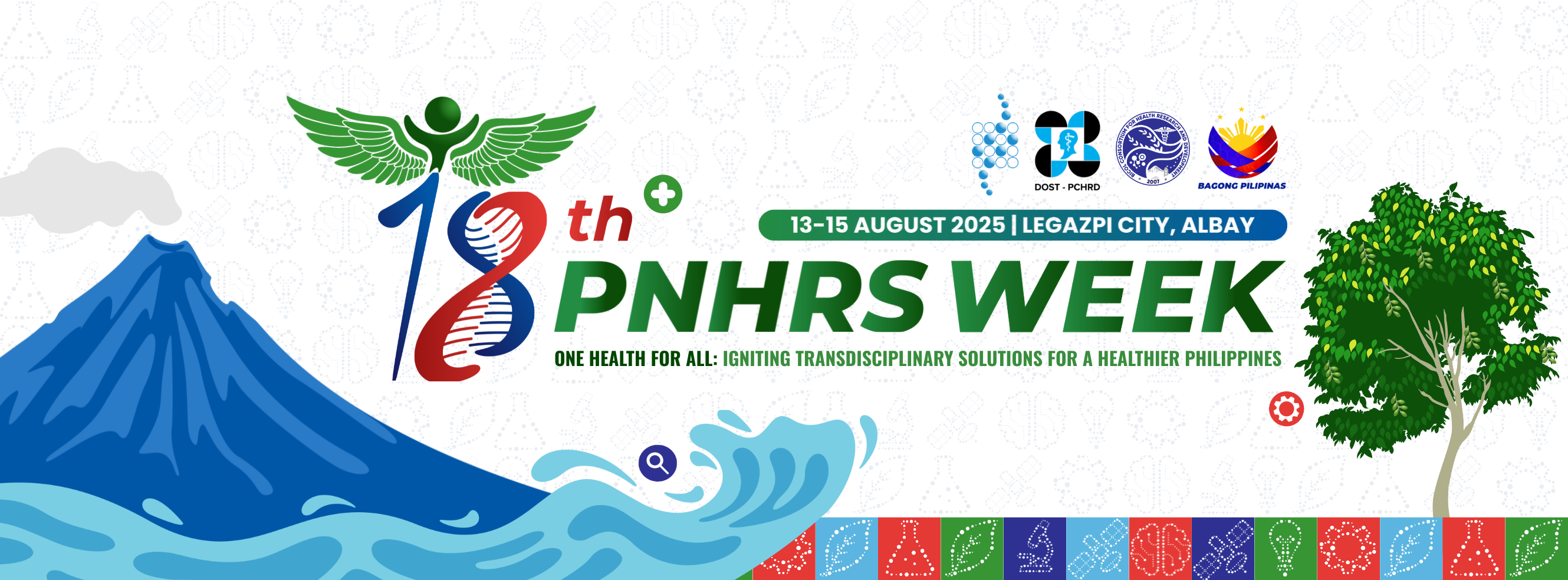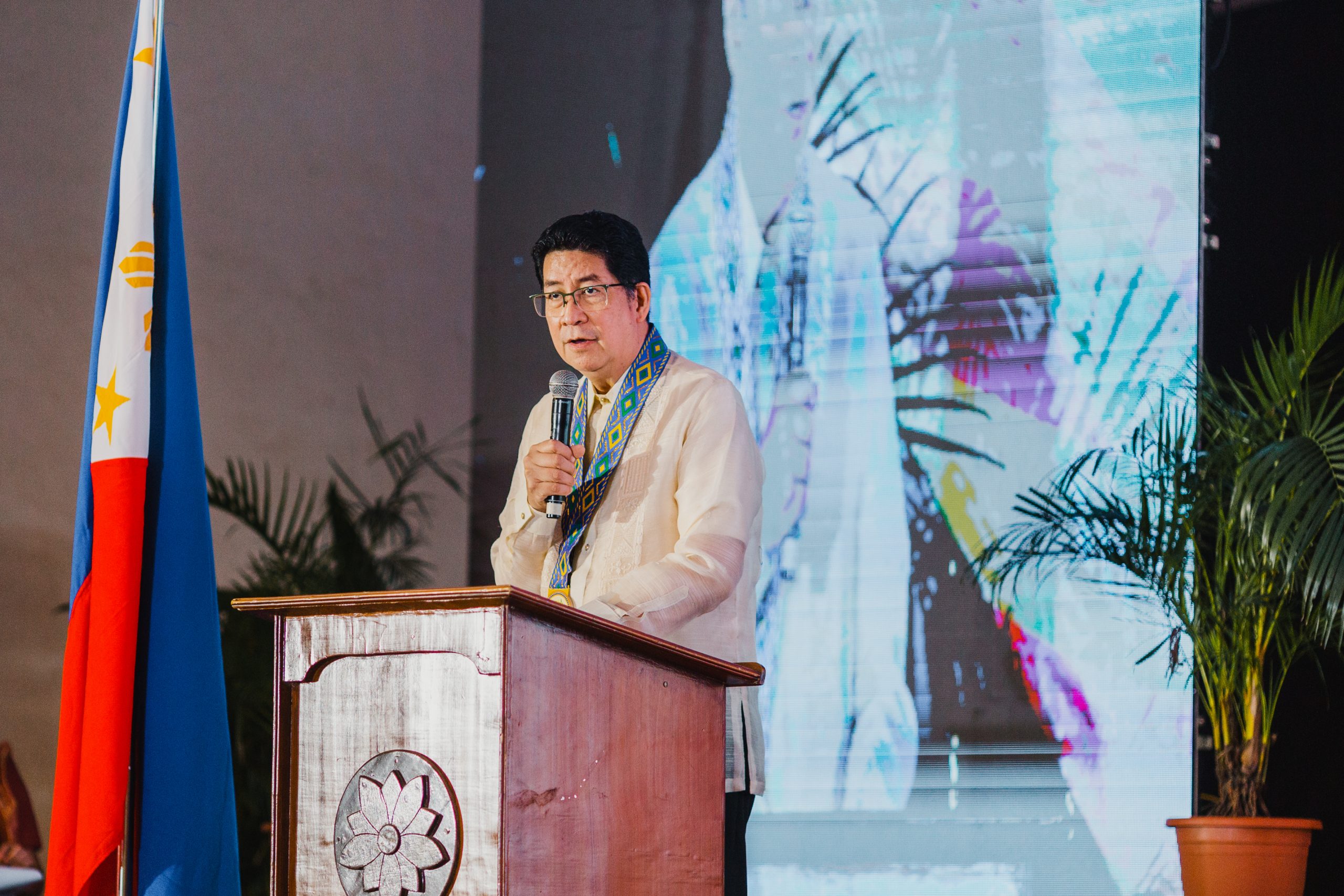
“Health equity is a commitment. One Health gives us the blueprint. Universities give us the tools,” said University of the Philippines (UP) Manila Chancellor Dr. Michael L. Tee in his keynote presentation during the opening ceremonies of the 18th Philippine National Health Research System (PNHRS) Week, held on 13 August 2025 in Legazpi City, Albay. The event was inspired by the theme, “One Health for All: Igniting Transdisciplinary Solutions for a Healthier Philippines.”
Dr. Tee explained that weaknesses in existing systems often make health inequities worse. Surveillance networks remain fragile, leaving communities without timely information on emerging threats. Families in rural and poor communities continue to carry the heavier burden of diseases that spread from animals to humans, such as rabies and dengue. Environmental degradation and climate change further magnify these risks, creating conditions where already vulnerable groups struggle the most. “Health equity requires more than expanding hospital capacity or financing reforms, and calls for commitment to address these uneven burdens of the people,” he noted.
Dr. Tee also emphasized the One Health Approach as a guiding framework for building more resilient systems. It recognizes that human health is closely linked to animal and environmental health. He cited the growing threat of antimicrobial resistance as an example of how the approach equips countries to respond before problems worsen. It also strengthens preparedness against zoonotic diseases, supports environmental interventions, and helps communities adapt to climate-related risks and disasters. “The One Health Approach provides the blueprint for preventing crises and building systems capable of withstanding threats,” Dr. Tee said.
“Universities and other academic institutions carry a responsibility beyond their campuses,” Dr. Tee added. “Through the One Health University Network’s threefold mandate of education, research, and extension service, we in the academe are uniquely positioned to turn One Health into practical tools.” He explained that education prepares future health leaders with the knowledge and perspective to apply the approach; research generates the evidence needed to guide policies, and extension work ensures that communities directly benefit from academic outputs.
He cited the Field Epidemiology Training Program (FETP) as an example of how academic training delivers real-world impact. During the COVID-19 pandemic, FETP graduates strengthened the country’s ability to respond quickly to outbreaks, trace infections, and help inform local authorities. “This is how universities give ‘the tools’ that turn theory into practice. Without such preparation, the One Health Approach would remain an abstract idea rather than a functioning strategy,” Dr. Tee explained.
Dr. Tee concluded by emphasizing that the promise of Universal Health Care (UHC) cannot be fulfilled unless health systems adopt the One Health Approach as the blueprint for equity. He stressed that the approach only becomes actionable when universities provide the tools to implement it by training health leaders, producing research that guides policies, and extending expertise to communities. In doing so, universities can transform One Health from a concept into practical strategies that strengthen prevention, preparedness, and fairness in health systems. For Filipinos, this means having a healthcare system that anticipates risks, protects communities, and builds a healthier nation for generations to come.






